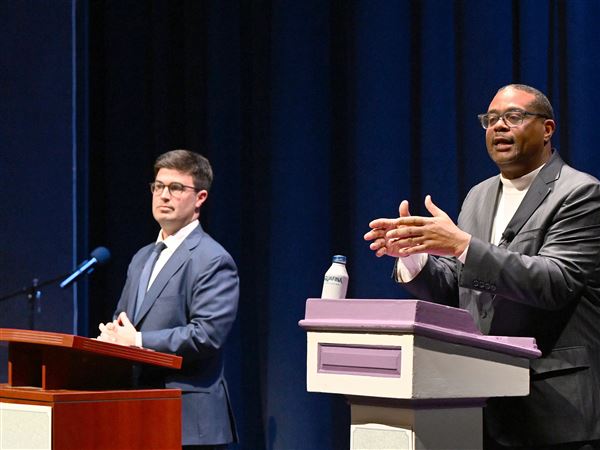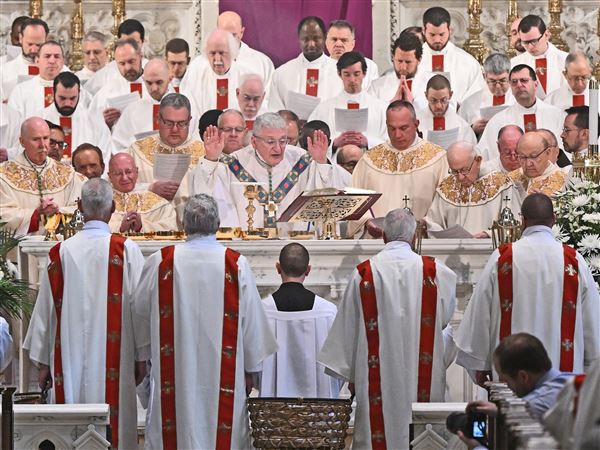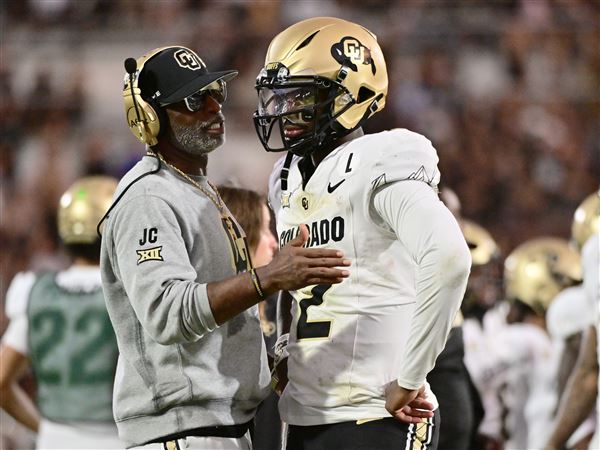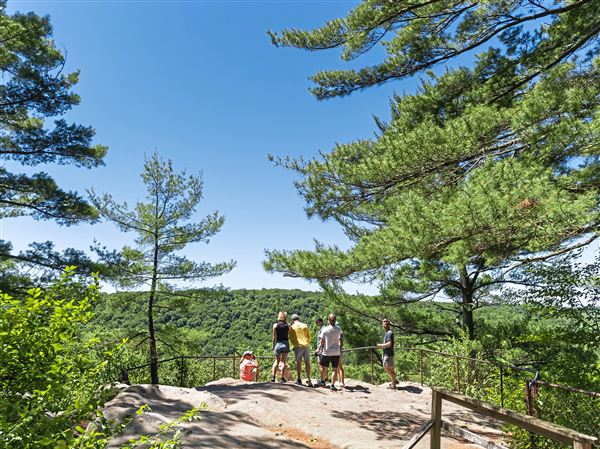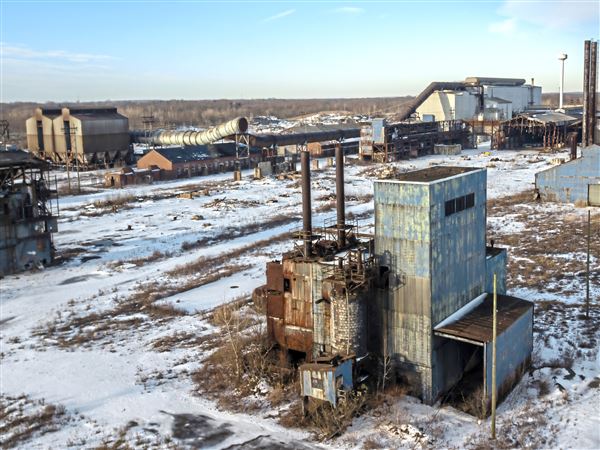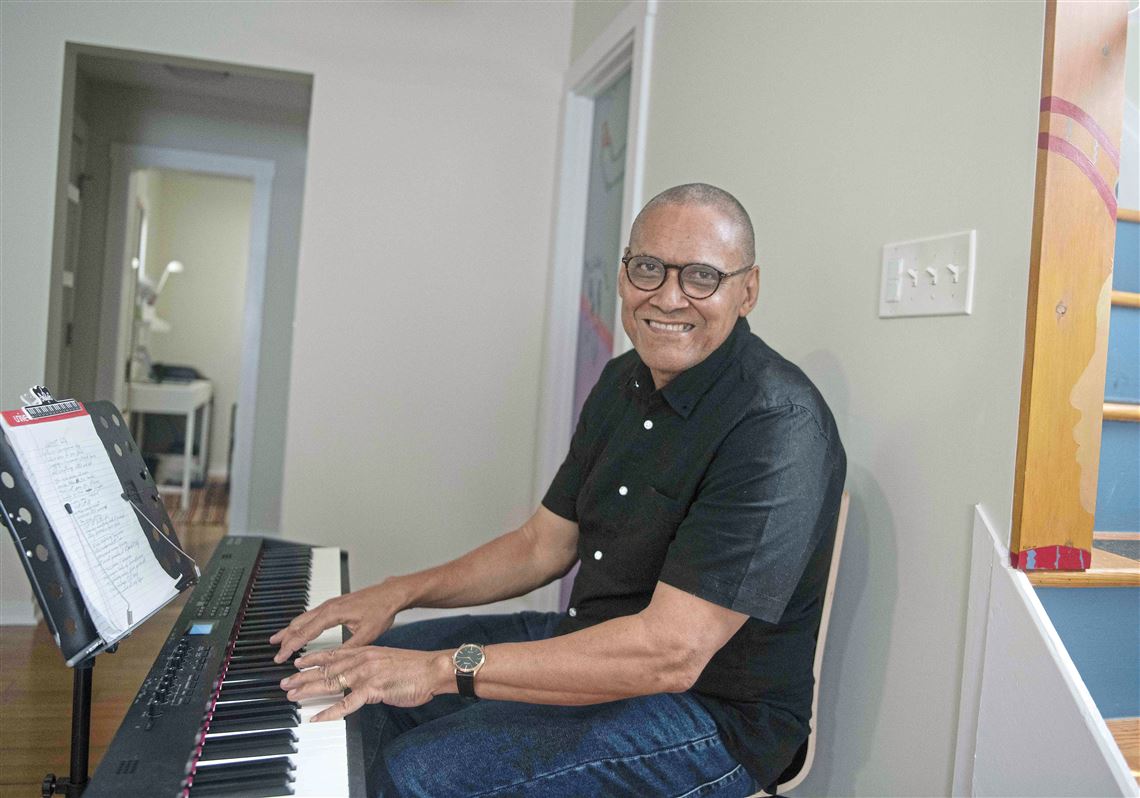On Pittsburgh’s North Side, the writer and Cuban dissident Jorge Castillo carries fresh memories of harsh persecution under the Fidel Castro regime.
“The Cuban government — the Cuban regime — controls everything,” Mr. Castillo said in a recent interview. “Cuba works like a prison, and there are not freedoms.”
Mr. Castillo, who was arrested and jailed in 2003 for speaking out against the government as a journalist, likens his experience to George Orwell’s dystopian novel “1984,”its themes of restricted free speech and heightened authoritarianism not foreign to life on the island.
So it’s understandable that he’d have mixed feelings, at best, about a recent move by the Biden administration to relax some restrictions between the U.S. and Cuba, where socioeconomic conditions are considered the worst in nearly 30 years following the COVID-19 pandemic and 2021 anti-government protests.
Since his 20-month incarceration, much has changed for Mr. Castillo, who obtained a fellowship from Harvard University and is now a writer-in-residence at the North Side’s City of Asylum.
After President Joe Biden’s announcement, Mr. Castillo and other Cubans living in Pittsburgh offered differing perspectives on how the strategy could affect everyday life in Cuba, where food shortages have caused reported seven-hour lines for cooking oil and powdered milk is so rare it’s sold on the black market for about $40.
“Most who go to Cuba do not realize this situation,” Mr. Castillo explained. “They go to the hotels, and their contact with the people is very superficial — and for that, they cannot know the true situation of the Cuban system.”
Diplomatic about-face
Several tenets of Mr. Biden’s strategy aim to return U.S.-Cuba relations to where they were when then-President Barack Obama reinvigorated diplomacy between the nations. In a large move on tourism, U.S. travel to Cuba in groups will again be authorized for the first time since 2019.
Mr. Biden also addressed an influx of U.S.-bound immigration from Cuba by announcing the government would process 20,000 backlogged visas for Cubans looking to rejoin family here, while easing restrictions on remittance payments made between the countries.
So as the sheltered Americans who Mr. Castillo mentioned begin booking their flights to Havana — a Trump administration ban and the pandemic having previously blocked them from doing so — some experts believe everyday Cubans who work in tourism will benefit from an industry rebound.
Cuba’s tourism industry, which brought the country nearly $3 billion per year before the pandemic, has so far failed to return to its 2019 high. That year, more than 4 million tourists visited the island.
But Mr. Castillo doubts that more tourism will help average Cubans in a larger sense. A study from the Pew Research Center estimated that the country’s socialist government controls nearly three-quarters of the island’s economic activity.
“All of that money will strengthen the dictatorship,” Mr. Castillo said. “We have to remember, the government has everything under its control. The totalitarian system [in place] since 1959, it hasn’t changed ever since.”
Tourism as a lifeline
More than 400,000 Cubans work in tourism and hospitality, many of whom try to afford food and consumer goods amid shortages and rising prices.
Kenya Dworkin y Méndez, a Cuban American professor of Hispanic studies at Carnegie Mellon University, said she believes tourism is important because it brings much-needed cash to the hands of everyday Cubans.
“When people go spend money in Cuba, it’s not just the government-owned hotels, and you know, the people who own restaurants and make money,” Ms. Dworkin y Méndez said. “It’s everyday people — taxi drivers, anybody has a chance to make some money. It’s just a little bit, but it’s more than they have now.”
Still, Ms. Dworkin y Méndez said that income won’t stretch as far as it once did, as the price of food and consumer goods in Cuba rose over 70% last year due to inflation.
“The price of everything, like cooked chicken, cooking oil, are just through the roof,” Ms. Dworkin y Méndez said. “And salaries have not improved at all — they’re very low. The buying power is really down.”
Mr. Castillo also agrees that the impact of tourism will have positive benefits for everyday Cubans, though he stressed that it won’t move them closer to freedom.
“Millions of European tourists have spent time on the island,” Mr. Castillo said, “and the dictatorship is there.”
A complex community
Ms. Dworkin y Méndez believes Mr. Biden’s strategy will face criticism from Cuban Americans, a community that historically leans conservative. In a 2021 poll, 66% of Cuban Americans surveyed said they were opposed to a return to Obama-era relations between the countries.
Mr. Biden already has been castigated by Sen. Robert Menendez, D-N.J., a Cuban American who supports hardline economic restrictions against the Cuban government.
“I feel like it’s a tightrope, because the hardline [strategy] has not worked very much over a period of more than 50 years,” Ms. Dworkin y Méndez said. “It seems to me like people need to realize that [the U.S.] needs to ease the pain of people on the ground there.”
It’s still unclear whether Mr. Biden’s strategy — especially processing of backlogged visas — will benefit Cubans in Pittsburgh who have family members looking to escape conditions on the island. The community here is small, with one estimate reporting just 150 to 200 Cubans living here.
When Ms. Dworkin y Méndez arrived in Pittsburgh in 1993, she remembers a small but growing community of Cubans, who were both professors and doctors, as well as families that were settled here by the Catholic Charities organization.
There were even two Cuban restaurants, she said: Salud, in Lawrenceville, and Kenny B’s Eatery, in Downtown, both which have since closed.
‘It’s really devastating’
Angela Garcia, executive director of Pittsburgh-based Global Links, understands the conditions that Cubans are fleeing. At the nonprofit, Ms. Garcia and her team work to route surplus medical supplies from U.S. hospitals to Latin American and Caribbean countries, including Cuba.
According to Ms. Garcia, the island’s shortages extend past food and consumer goods — essential medical supplies are also dangerously low.
Lately, Ms. Garcia said there’s a severe lack of medical supplies, feminine hygiene products and baby formula on the island.
“It’s really devastating,” Ms. Garcia said. “For hospitals and health care not to have the basic supplies they need — syringes, gloves, things that we just take for granted, [like] having functional operating rooms.”
Ms. Garcia also remains skeptical of the United States’ Cuba strategy after the Biden administration failed to extend a formal invitation to the island’s government to the Summit of the Americas in Los Angeles. The government cited a “lack of democratic space and the human rights situations” in Cuba, along with Venezuela and Nicaragua
In a further strain, 23 members of a Cuban civil society delegation were denied visas to attend the conference, including scientist and physician Tania Crombet Ramos and Olympic medal-winning wrestler Reineris Salas Pérez.
Ms. Garcia wonders why the U.S. would ease its restrictions with Cuba, then in the same week deny them an invitation.
“To have bilateral relations, improvement and normalization, then denying visas for leadership in Cuba that could come to the Americas and have conversations, seems to be a bit counter to that,” Ms. Garcia said.
Jesse Bunch: jbunch@post-gazette.com or Twitter @JesseBunch_.
First Published: June 27, 2022, 10:00 a.m.
Updated: June 27, 2022, 12:38 p.m.
